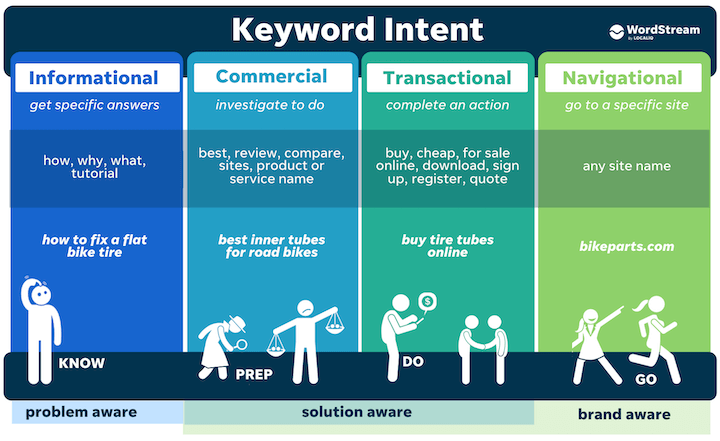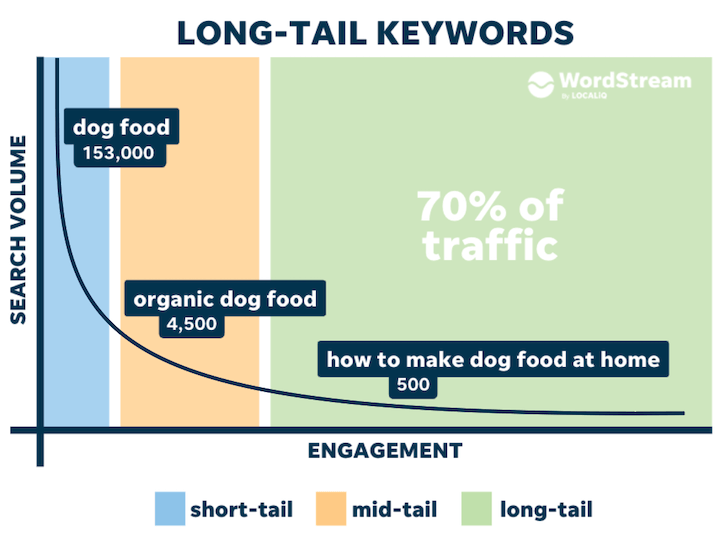Curious about different types of keywords and how to use them effectively? Discover the power of understanding keyword variations here!

Image courtesy of via DALL-E 3
Table of Contents
Introduction to Keywords
Keywords are like magic words that help us find what we’re looking for on the internet. Imagine you’re searching for your favorite video game or a yummy pizza recipe. How do you think search engines like Google know exactly what to show you? It’s all thanks to keywords!
What Are Keywords?
Keywords are specific words or phrases that describe the main topic of a webpage or content. They act as signposts that guide us to the information we want. For instance, if you’re interested in learning about cute kittens, you might type in keywords like ‘adorable cats’ or ‘kitten care’ to find relevant articles or videos.
Why Are Keywords Important?
Keywords play a crucial role in helping people discover useful content online. When someone searches for ‘delicious chocolate cake recipe,’ search engines use these keywords to match the query with relevant websites. Websites that use the right keywords stand a better chance of appearing at the top of search results, making it easier for users to find what they’re looking for.
Types of Keywords
Keywords come in different shapes and sizes, each serving a unique purpose in helping people find information online. Let’s take a look at two common types of keywords: Broad Keywords and Long-Tail Keywords.
Broad Keywords
First up, we have broad keywords. These are general terms that cover a wide range of topics. Imagine searching for “sports” or “movies” – these are examples of broad keywords that can lead you to a variety of content related to those topics.
Long-Tail Keywords
On the other hand, long-tail keywords are more specific phrases that target a particular audience looking for detailed information. For instance, someone searching for “best sports shoes for kids” is using a long-tail keyword to find exactly what they need.
Understanding the differences between broad and long-tail keywords can help you choose the right keywords for your content and reach the right audience.
Short-Tail vs. Long-Tail Keywords
Short-tail keywords are brief and general terms that people often search for online. For example, if someone is looking for information about cats, they might type in the word “cats” into a search engine. Short-tail keywords are usually one or two words long and are very broad in scope.

Image courtesy of www.wordstream.com via Google Images
What Are Long-Tail Keywords?
Long-tail keywords, on the other hand, are more specific and detailed phrases that people use when searching for something online. For instance, instead of searching for “cats,” someone might search for “best cat breeds for apartments.” Long-tail keywords are longer, usually containing three or more words, and are more targeted in addressing a particular topic or need.
Differences and Uses
The main difference between short-tail and long-tail keywords lies in their specificity. Short-tail keywords are broad and draw a larger amount of traffic, but they also face higher competition. In contrast, long-tail keywords are more precise and attract more qualified traffic, leading to better conversion rates.
Short-tail keywords are suitable for general topics or when you want to drive more overall traffic to your website. On the other hand, long-tail keywords are effective for targeting a niche audience or addressing specific needs. It’s essential to consider the purpose of your content and the audience you want to reach when deciding between short-tail and long-tail keywords.
How to Choose Keywords
When it comes to choosing the right keywords for your content, one effective method is brainstorming. This involves thinking about the main topics or themes you want to cover and then coming up with relevant words or phrases that people might use to search for that information. For example, if your content is about the best ways to stay healthy, some keywords you might brainstorm could be “healthy lifestyle,” “exercise tips,” or “nutritious diet.”
Using Keyword Tools
In addition to brainstorming, you can also use keyword research tools to help you find good keywords for your content. One popular tool is the Google Keyword Planner, which provides insights into the search volume and competition for different keywords. By using these tools, you can discover new keywords you may not have thought of on your own and optimize your content for better visibility in search engines.
Using Keywords in Content
Keywords play a crucial role in making your content visible to the right audience. When creating blog posts or web pages, it’s essential to strategically place keywords in certain locations to ensure search engines can easily identify the topic of your content. The key areas where you should include keywords are titles, headings, meta descriptions, and throughout the body of your text. By placing keywords in these locations, you increase the chances of your content being found by users searching for related information.

Image courtesy of venngage.com via Google Images
Keyword Density
Keyword density refers to the number of times a specific keyword appears in your content compared to the total word count. While it’s important to include relevant keywords to improve your content’s visibility, it’s equally important not to overuse them. Overstuffing your content with keywords can make it appear spammy and unappealing to readers. Aim for a natural use of keywords that flows seamlessly within the context of your content. Balancing keyword usage with high-quality, engaging content is key to optimizing your content for search engines.
Tracking Keyword Performance
In the world of digital content, using the right keywords is crucial for helping people discover information online. But how do we know if the keywords we choose are effective? That’s where tracking keyword performance comes in.
Using Analytics Tools
Analytics tools are like digital detective kits that help us understand how well our chosen keywords are working. These tools can show us how many people are visiting our website, how they found us, and which keywords they used to get there. Google Analytics is a popular tool that can provide valuable insights into keyword performance.
Making Adjustments
Monitoring keyword performance allows us to see which keywords are bringing in the most traffic and which ones might need tweaking. By analyzing this data, we can make informed decisions about which keywords to keep, which ones to optimize, and which ones to let go. It’s like a digital strategy game where we constantly adjust our moves based on what’s working and what’s not.
Common Mistakes to Avoid
When it comes to using keywords, there are some common mistakes that people often make. By steering clear of these errors, you can ensure that your content performs well and reaches the right audience.

Image courtesy of www.wordstream.com via Google Images
Keyword Stuffing
One major mistake to avoid is keyword stuffing. This refers to the practice of overloading your content with keywords in an attempt to manipulate search engine rankings. Not only does this make your content unreadable and unengaging for your audience, but it can also harm your site’s SEO. Search engines now penalize websites that engage in keyword stuffing, so it’s crucial to use keywords strategically and naturally within your content.
Using Irrelevant Keywords
Another mistake to steer clear of is using irrelevant keywords. While it may be tempting to incorporate popular keywords into your content, if they are not directly related to the topic at hand, it can confuse both search engines and your audience. Make sure that the keywords you choose are relevant to the content you are creating. This will help you attract the right audience who is genuinely interested in what you have to offer.
Success Stories
Let’s talk about how using the right keywords can make a blog really popular. Imagine a blog about baking cookies. The blogger, let’s call her Sarah, realized that using keywords like “easy cookie recipes” and “best cookies for parties” helped more people find her blog. Soon, her blog started getting lots of visitors because those keywords matched what people were searching for. Sarah’s blog became a huge success all thanks to using the right keywords!
Popular Videos
Have you ever wondered why some videos on the internet get millions of views? Well, using the right keywords is one big reason! Let’s take an example of a video about cute puppies. The creator used keywords like “adorable puppies” and “funny dog videos,” which made it easier for people to stumble upon the video when they searched for those terms. Because of these keywords, the video became a viral hit and made the creator really happy!
Conclusion
In this article, we have explored the diverse world of keywords and their significance in the digital landscape. By understanding the different types of keywords and how to effectively utilize them, individuals can enhance the visibility and reach of their online content.

Image courtesy of venngage.com via Google Images
Recap of Key Points
Keywords are vital tools that help search engines locate relevant information on the internet. By integrating specific keywords into digital content, individuals can boost their website’s SEO and attract more visitors. Broad keywords, like ‘sports’ or ‘movies,’ offer a general overview of a topic, while long-tail keywords, such as ‘best sports shoes for kids,’ hone in on specific details.
Choosing the appropriate keywords involves brainstorming relevant terms and utilizing tools like Google Keyword Planner for research. Properly placing keywords within content, such as in titles and headings, and maintaining an optimal keyword density are crucial for effective SEO strategies.
Tracking keyword performance through analytics tools is essential for monitoring the success of digital content. Making adjustments based on keyword performance can further optimize website traffic and engagement. It is imperative to avoid common mistakes like keyword stuffing and using irrelevant keywords that can hinder the effectiveness of digital content.
Importance of Understanding Keywords
Recognizing the importance of keywords and how to leverage them effectively can significantly impact the success of digital content. By implementing sound keyword strategies, individuals can enhance their online presence, attract more visitors, and achieve their desired goals.
As we conclude our discussion on keywords, remember that mastering the art of keyword usage is a valuable skill in the digital age. Stay informed, stay creative, and continue exploring the dynamic world of keywords to maximize the impact of your online content.
Frequently Asked Questions (FAQs)
What Is a Keyword?
A keyword is a word or phrase that describes the main topic of a piece of content. In the digital world, keywords are used to help people find information they are looking for on search engines like Google. For example, if you are searching for information about healthy recipes, “healthy recipes” would be the keyword you would type into the search bar.
Why Do We Need Keywords?
Keywords are essential for both users and search engines. For users, keywords make it easier to find the information they are searching for quickly. When someone searches for a specific keyword, search engines like Google use those keywords to match the most relevant content to the user’s query. This is why it’s crucial for websites and content creators to use the right keywords to ensure their content is easily discoverable by their target audience.







